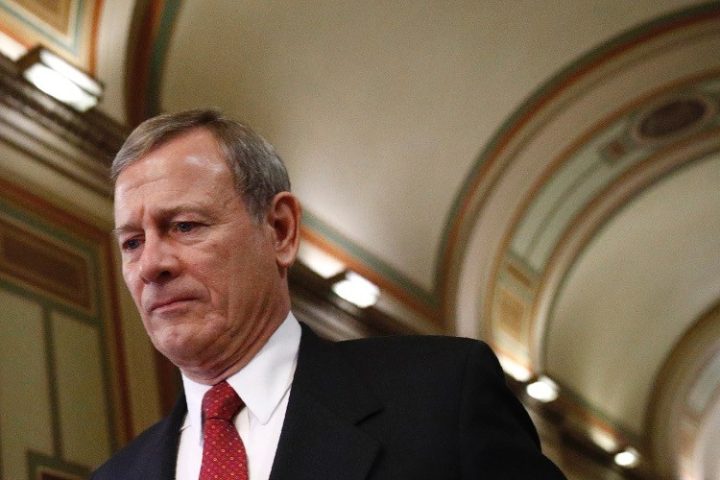
Lawyers who clerk for justices on the U.S. Supreme Court might soon get lawyers of their own.
SCOTUS sources told CNN that Chief Justice John Roberts will confiscate cellphone records and require clerks to sign legal affidavits as part of his quest to uncover the unscrupulous sneak who leaked the forthcoming decision that will overturn Roe v. Wade.
Roe is the outrageous decision in 1973 that overturned every abortion statue in the country and legalized abortion up to birth. The sisterhood and the abortion lobby were enraged when they learned the Court would return the nation to some semblance of constitutional order by overturning Roe in ruling on Dobbs v. Jackson Women’s Health Organization.
But even legal scholars who oppose the decision are unhappy about the leak because it could erode trust among justices, and sabotage the ability of the justices to do their jobs.
Cellphones, Affidavits
Some clerks are considering hiring “outside counsel,” CNN reported, to defend themselves against the “unprecedented” move:
Lawyers outside the court who have become aware of the new inquiries related to cell phone details warn of potential intrusiveness on clerks’ personal activities, irrespective of any disclosure to the news media, and say they may feel the need to obtain independent counsel.
“That’s what similarly situated individuals would do in virtually any other government investigation,” said one appellate lawyer with experience in investigations and knowledge of the new demands on law clerks. “It would be hypocritical for the Supreme Court to prevent its own employees from taking advantage of that fundamental legal protection.”
Sources familiar with efforts underway say the exact language of the affidavits or the intended scope of that cell phone search — content or time period covered — is not yet clear.
Neither the language of the affidavits nor the range of the cellphone search is clear. But law professor Jonathan Turley says the leaker should be more worried about the affidavit.
“After all, the leaker may have wisely avoided using the cellphone or creating digital tracks,” Turley wrote. Not so, with the affidavit. It will be a sworn statement given to a federal investigator, which would subject the person who signed to perjury charges — and a wrecked legal career:
Under 18 U.S.C. 1001, it is a federal crime to knowingly and willfully make a materially false, fictitious, or fraudulent statement in any matter within the jurisdiction of the executive, legislative, or judicial branch of the United States. While there were possible criminal claims that could have been brought based on the leak, this makes such criminality clear and undeniable.
That would mean that any doubt would be removed for the leaker. If he or she were to go public or be uncovered in the future, there would be a risk of not simply disbarment but criminal prosecution.
Fire the Leaker
Elaborating on a tweet, leftist Havard law professor Laurence Tribe told Law & Crime that the leak could damage the court.
“The law clerks have positions of very special confidentiality and responsibility, and a leak of this kind — though it shouldn’t distract our attention from the more important issue of what was in fact leaked and the importance of the impending overruling of Roe vs. Wade — nonetheless is extremely damaging to the court as an institution and to its ability to function,” he said. “If law clerks can’t be trusted by their justices, it’s almost as bad as justices not trusting one another.”
As well, law clerks are obliged to cooperate with the probe because of their unique jobs:
I think whoever was the source of this leak really ought to be fired, and ought not to get all of the perks that go along with having been a clerk at the court, perks that are enormously valuable both in monetary terms, with the bonuses of hundreds of thousands of dollars that law clerks get, and in terms of prestige.
Beyond that, though, Tribe said a leaky court cannot function.
“The relationship between law clerks and their justices, and among the justices, is extremely close and confidential,” Tribe told the website:
Justices have to feel free to express their views to one another in initial drafts without thinking they’ll be ventilated publicly. Without that, the court might as well stop functioning.
Speculation about the leaker mostly focuses on leftists who wanted to mobilize voters to stop the beating Democrats are expected to take in November’s midterm elections.
H/T: Legal Insurrection



